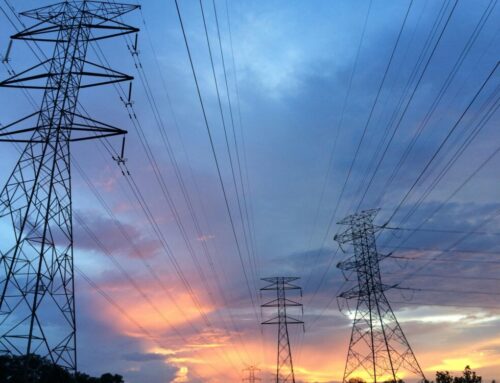Article by
Utility regulators said Monday that the state’s electricity grid is significantly more resilient now than when it nearly collapsed during last February’s deadly freeze — even though a number of power plants still haven’t resolved deficiencies in their winterization efforts.
“The system I believe is in much better condition this year than it was last year,” said David Kezell, director of weatherization and inspection at the Electric Reliability Council of Texas, which operates the power grid.
New state rules put in place in the wake of the February calamity have required operators of power plants and transmission facilities on the ERCOT grid to adhere to winterization requirements or face fines — the first time they’ve been subject to such mandates.
State officials have determined that 246 people died for reasons related to the freeze and power grid failure in February that left many Texans without heat and electricity for days, although outside experts have said the victim count is probably much higher.
Kezell provided an update on the winterization efforts during an ERCOT board meeting Monday, saying he’s been pleased overall by the effort put forth by companies to comply with the new rules and to prepare for cold weather. ERCOT plans to release its final winterization inspection assessment Tuesday.
The agency has received winterization readiness reports from all 847 generators that were required to submit them, Kezell said, although 19 came in after the Dec. 1 deadline.
ERCOT previously said it has conducted on-site inspections this winter at 302 generators — which were responsible for about 85% of the generation capacity knocked offline during the February freeze — and at 22 distribution facilities.
Still, Kezell said Monday that generators asserted 532 “good cause” exemptions for noncompliance with the various winterization requirements, and 114 of the issues remain unresolved.
Under the winterization rules, companies were allowed to assert a good cause exemption for failure to meet the requirements, provided they documented the reasons for it and presented timelines for coming into compliance.
Kezell said ERCOT is monitoring 54 instances in which generators have asked for more time to comply with certain mandates, and another 60 requests have been referred to the Public Utility Commission “for evaluation and enforcement.” In the case of the 60, the companies didn’t submit enough information for ERCOT “to ascertain whether they were serious or not” about addressing the issues, he said, or ERCOT had reservations about their plans to do so.
Fines of up to $1 million per day can be assessed for failure to comply with the winterization rules.
Combined, Kezell estimated that the 114 remaining assertions of good cause exemptions are at power plants that account for about 10% of generation capacity on the ERCOT grid.
But “that doesn’t mean they didn’t make significant efforts to get the facility ready for the winter — it just means there are parts of it that remain undone,” Kezell said.
“It doesn’t mean that 10% of our generation facilities are not able to generate,” he said. “Most of them can generate, but they just probably have some chink in their armor, so to speak, with one element or two elements that still need to be completed.”
A number of ERCOT board members who participated in the meeting Monday praised the efforts by the agency’s staff to oversee the new winterization requirements, even as they voiced concerns about the winter preparedness of the state’s natural gas sector.
The Public Utility Commission, which oversees ERCOT, put in place the winterization mandates for power generators and transmission facilities. But the Texas Railroad Commission oversees the oil and gas sector and has yet to enact similar requirements for gas producers — a potential Achilles’ heel in the effort to bolster the grid because a big portion of generators rely on natural gas as fuel.
Still, Peter Lake, who chairs the PUC and participated in the ERCOT meeting, said he’s confident in the overall grid for this winter, based on the changes enacted by state lawmakers and his agency, as well as ongoing efforts in conjunction with the Railroad Commission to increase communication and cooperation between generators and the natural gas sector.
Lake, an appointee of Gov. Greg Abbott’s, has previously echoed a vow made by Abbott that there won’t be a repeat of the February grid disaster and that “the lights will stay on” this winter.
“It’s important to remember that all of these different reforms, enhancements and hardening of our infrastructure dramatically improve the reliability of our generating fleet and our grid,” Lake said during Monday’s ERCOT meeting.
Kezell said the efforts made so far probably would lessen the amount and duration of blackouts if a weather event on the scale of the February freeze strikes again. But he stopped short of saying there wouldn’t be any power outages.
“I feel very confident that (the amount of generation capacity knocked offline) would shrink substantially,” he said.
“What has been addressed are many of the known freezing problems and known cold weather problems,” he said. “Could there be more out there? Of course there could.”
Read the entire article on https://www.yahoo.com/news/ercot-gives-power-plants-good-215851997.html
This article originally appeared on Austin American-Statesman: ERCOT gives generators good marks for winter weather preparation





